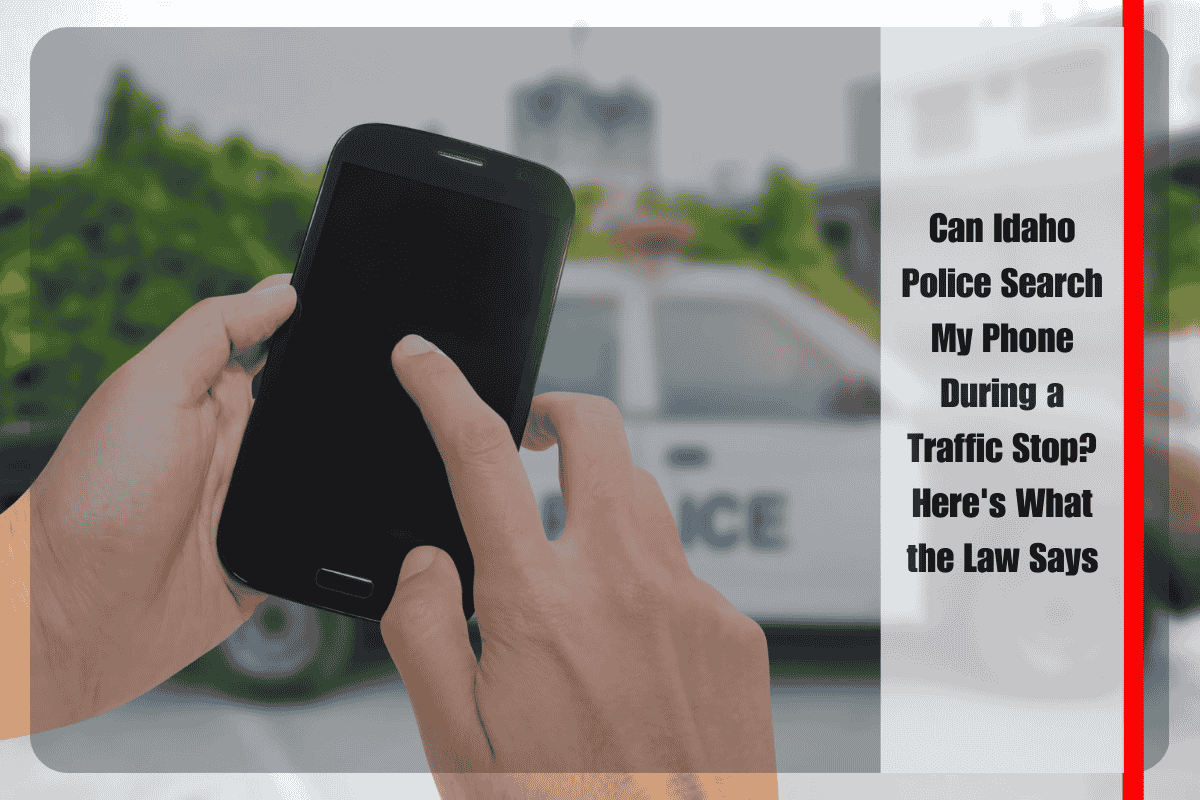In Idaho, the ability of police to search your phone during a traffic stop is protected under the Fourth Amendment, which guards against unreasonable searches and seizures. Generally, law enforcement officers cannot search the contents of your phone without a warrant based on probable cause, even if the phone is seized during a traffic stop.
The U.S. Supreme Court has recognized that cell phones contain vast amounts of personal information protected by heightened privacy rights. According to Idaho laws and interpretations consistent with federal standards, police must usually obtain a warrant before accessing data on your phone, except under certain limited exceptions.
One such exception is exigent circumstances—situations where there is an immediate threat to public safety or risk that evidence may be destroyed if police delay to get a warrant. For example, if police have probable cause to believe your phone contains evidence related to a serious crime or imminent danger, they may conduct a warrantless search in those urgent situations.
Moreover, if you are lawfully arrested during a traffic stop, police can search your person and immediate surroundings as part of the arrest process. However, courts have generally ruled that smartphones are different from physical containers like wallets or bags because of the immense amount and sensitivity of information stored, requiring a warrant for a deeper digital search.
Police may also view information on your phone that is in plain view without unlocking or bypassing security, such as the fact that you are holding a phone. But accessing texts, photos, call logs, or app data without proper legal authority is likely unconstitutional.
In Idaho during a traffic stop, police cannot search your phone without a warrant unless there is an exigent circumstance or another narrow exception. If officers attempt to search your phone without a warrant or your consent, you have the right to refuse and can later challenge any evidence obtained in an unlawful search. For more detailed rights and advice, consulting a local attorney familiar with Idaho criminal and constitutional law is recommended.
Sources
[1] https://scholarship.law.edu/cgi/viewcontent.cgi?article=1137&context=scholar
[2] https://www.uscourts.gov/sites/default/files/rights-police-stops.pdf
[3] https://en.wikipedia.org/wiki/Stop_and_identify_statutes
[4] https://legislature.idaho.gov/statutesrules/idstat/title49/t49ch14/sect49-1401a/
[5] https://legislature.idaho.gov/statutesrules/idstat/title19/t19ch6/sect19-625/












